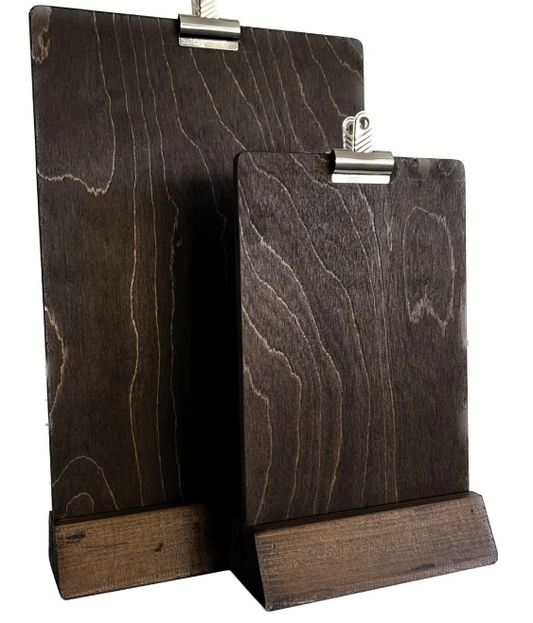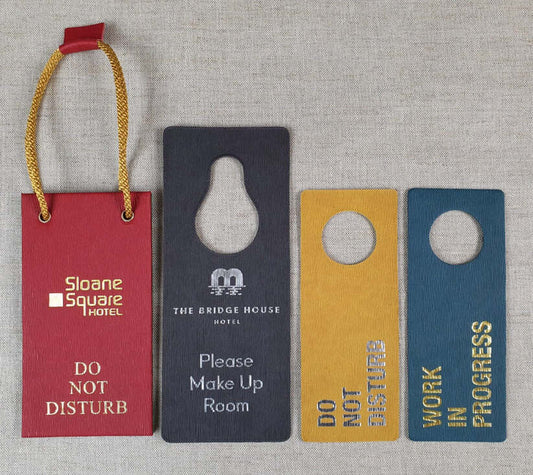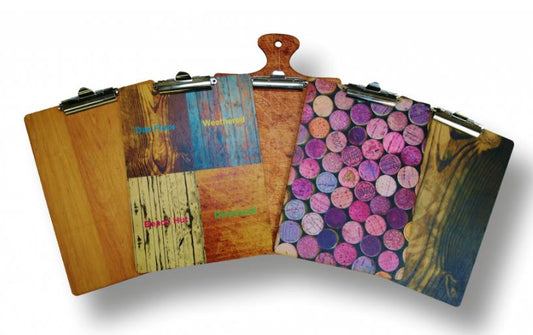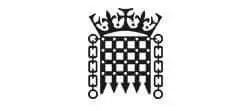Nobody knows when or where “Do Not Disturb” signs originated. There has been no exact recorded history of it or whoever invented it. However, it was surmised that DND signs became popular in the 20th century, especially in hotels.
DND signs, to say the least, are dainty. They come in different designs, from the stern to the very basic, all the way to be silly, creative, and playful. They come in various materials as well, making them attractive collectables. It is not surprising that you’ll come upon travelling enthusiasts who keep with them and collect DND door hangers from the hotels they’ve been to.
The Use Of DND Signs In Hotels and Offices
Fast forward to the 21st century, and you’ll see an evolution of the standard DND door hanger and what they’re used for. It is common knowledge that other than in hotels, Do Not Disturb signs are also used in the office, where typically there are individual office rooms, cubicles, or shared workspaces.
Then came the evolution of the work area into homes, where remote work became a widely accepted trend. As you know, vloggers, presenters, musicians, podcasters, internet marketers, and the like now do their work in the comfort of their homes (or home offices). Like regular office workers, they badly need privacy when doing their thing. This is when DND signs come in handy as well to keep relatives, spouses, and children out when necessary.
Recent Changes About DND Sign Policies
But a recent online update tells that the Do Not Disturb sign in hotels is disappearing.
Apparently, DND door hangers are no longer reliable for travellers to keep the staff out when they want privacy in their hotel rooms. It was Disney that was one of the establishments that implemented the alteration. They have swapped the Do Not Disturb door hanger with a sign that instead says “Room Occupied.”
This adjustment is subtle as it intends to inform guests about a new corporate policy indicating that staffers are required to inspect rooms every 24 hours, and there is no exception.
If the sign stays on the door longer, the staff is designated to knock and announce themselves prior to entering.
Disney World resorts and hotels were the first to be affected by this change, and the company stated that they would implement the same policy in all of their hotels.
Hilton surprisingly followed by adjusting their DND rules, too. Hilton applied that as their new policy because whenever housekeeping was barred from entering a hotel room via a DND sign, they were supposed to slip a card under the door with a notice saying “Unable to Service.” This gesture serves as a reminder to the guests that if within 24 hours or more they have kept the room unavailable to the staff, the management is apt to and most probably will turn up to inspect it.
Why DND Sign Rules Were Adjusted
It must have been the mass shooting in Las Vegas in 2017 that instigated this change. The gunman named Stephen Paddock had a Do Not Disturb sign hanging on his hotel room door for several days. This situation enabled him to conceal the ammunition he smuggled into the property.
It could be this circumstance that goaded the Hilton management to impose their new policy strictly.
Nevertheless, lawyer Stephen Barth, a hotel and restaurant management teacher, cited that it has been over a decade now wherein the industry has reviewed the DND sign. It has been the talk among authorities in the hotel industry to do something about DND signs, particularly when some customers have turned their hotel rooms into meth labs, along with other activities such as human trafficking and prostitution in separate instances.
Hotels have grown conscious about the illicit activities that perpetrators can get away with doing because of the sinister use of DND signs. It has become a significant concern how the possibility of suspicious and illicit activities can occur pertaining to DND signs. The tipping point was, of course, the Las Vegas incident that expedited the planned change of this policy.
So, Legally, What Does The DND Sign Mean?
So, generally, travellers no longer enjoy the right to place DND door hangers outside their doors as they used to. As hospitality lawyer Chris Johnston elucidates, DND door hangers are now meaningless legally. You might allude to the fourth amendment that guests can prohibit governmental agents from entering their hotel rooms just like their homes. Still, this restriction does not apply to hotel staffers.
It is a part of the agreement when renting a hotel room to consent to a waiver that allows the hotel staff and employees to admit themselves into the room for various reasons to guarantee the welfare of the guests or to check hotel equipment such as the A.C. So between the guest and the hotel, the DND sign has no significance unless otherwise stated in the contract.
The above instances indicate the evolution of Do Not Disturb signs in hotels, among others.
Read also:















